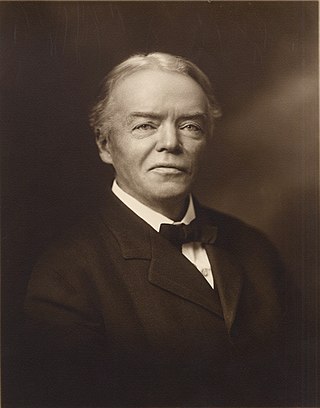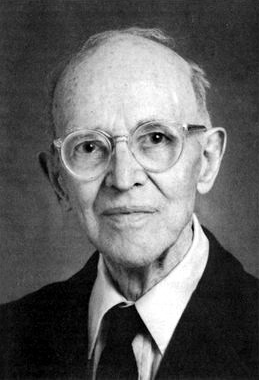Related Research Articles
Ontology is the philosophical study of being. As one of the most fundamental concepts, being encompasses all of reality and every entity within it. To articulate the basic structure of being, ontology examines what all entities have in common and how they are divided into fundamental classes, known as categories. An influential distinction is between particular and universal entities. Particulars are unique, non-repeatable entities, like the person Socrates. Universals are general, repeatable entities, like the color green. Another contrast is between concrete objects existing in space and time, like a tree, and abstract objects existing outside space and time, like the number 7. Systems of categories aim to provide a comprehensive inventory of reality, employing categories such as substance, property, relation, state of affairs, and event.
Process philosophy, also ontology of becoming, or processism, is an approach in philosophy that identifies processes, changes, or shifting relationships as the only real experience of everyday living. In opposition to the classical view of change as illusory or accidental, process philosophy posits transient occasions of change or becoming as the only fundamental things of the ordinary everyday real world.

Alfred North Whitehead was an English mathematician and philosopher. He created the philosophical school known as process philosophy, which has been applied in a wide variety of disciplines, including ecology, theology, education, physics, biology, economics, and psychology.

Reductionism is any of several related philosophical ideas regarding the associations between phenomena which can be described in terms of simpler or more fundamental phenomena. It is also described as an intellectual and philosophical position that interprets a complex system as the sum of its parts.

Pragmatism is a philosophical tradition that views language and thought as tools for prediction, problem solving, and action, rather than describing, representing, or mirroring reality. Pragmatists contend that most philosophical topics—such as the nature of knowledge, language, concepts, meaning, belief, and science—are best viewed in terms of their practical uses and successes.
Mereology is the philosophical study of part-whole relationships, also called parthood relationships. As a branch of metaphysics, mereology examines the connections between parts and their wholes, exploring how components interact within a system. This theory has roots in ancient philosophy, with significant contributions from Plato, Aristotle, and later, medieval and Renaissance thinkers like Thomas Aquinas and John Duns Scotus. Mereology gained formal recognition in the 20th century through the pioneering works of Polish logician Stanisław Leśniewski, who introduced it as part of a comprehensive framework for logic and mathematics, and coined the word "mereology". The field has since evolved to encompass a variety of applications in ontology, natural language semantics, and the cognitive sciences, influencing our understanding of structures ranging from linguistic constructs to biological systems.

Josiah Royce was an American Pragmatist and objective idealist philosopher and the founder of American idealism. His philosophical ideas included his joining of pragmatism and idealism, his philosophy of loyalty, and his defense of absolutism.

Charles Hartshorne was an American philosopher who concentrated primarily on the philosophy of religion and metaphysics, but also contributed to ornithology. He developed the neoclassical idea of God and produced a modal proof of the existence of God that was a development of Anselm of Canterbury's ontological argument. Hartshorne is also noted for developing Alfred North Whitehead's process philosophy into process theology.

Process and Reality is a book by Alfred North Whitehead, in which the author propounds a philosophy of organism, also called process philosophy. The book, published in 1929, is a revision of the Gifford Lectures he gave in 1927–28.
We diverge from Descartes by holding that what he has described as primary attributes of physical bodies, are really the forms of internal relationships between actual occasions. Such a change of thought is the shift from materialism to Organic Realism, as a basic idea of physical science.
Daniel A. Dombrowski is an American philosopher and professor emeritus of philosophy at Seattle University. Since 2009 he has served as Editor of the journal Process Studies, and is a past president of the Metaphysical Society of America (2018–19).
Alfred Ernest Whitehead was an English-born Canadian composer, organist, choirmaster, music educator, painter, whose works are held in a number of important private collections, and an internationally recognized authority in the field of philately. His The Squared-Circle Cancellations of Canada received its third edition shortly after his death.

Mou Zongsan was a Chinese philosopher and translator. He was born in Shandong province and graduated from Peking University. In 1949 he moved to Taiwan, and later Hong Kong, remaining outside of mainland China for the rest of his life. His thought was heavily influenced by Immanuel Kant, whose three Critiques he translated from English, possibly first, into Chinese, and above all by Tiantai Buddhist philosophy.
Leemon McHenry is a bioethicist and Emeritus Professor of Philosophy at California State University, Northridge, in the United States. He has held visiting research positions at Johns Hopkins University, UCLA and at the Institute for Advanced Studies in the Humanities in the University of Edinburgh. His research interests center on medical ethics, metaphysics, and philosophy of science.
Robert Cummings Neville is an American systematic philosopher and theologian, author of numerous books and papers, and ex-Dean of the Boston University School of Theology. He is Professor Emeritus of Philosophy, Religion, and Theology at Boston University.
Metaphysics is the branch of philosophy that investigates principles of reality transcending those of any particular science. Cosmology and ontology are traditional branches of metaphysics. It is concerned with explaining the fundamental nature of being and the world. Someone who studies metaphysics can be called either a "metaphysician" or a "metaphysicist".
The following outline is provided as an overview of and topical guide to metaphysics:
Speculative realism is a movement in contemporary Continental-inspired philosophy that defines itself loosely in its stance of metaphysical realism against its interpretation of the dominant forms of post-Kantian philosophy.

Michel Weber is a Belgian philosopher. He is best known as an interpreter and advocate of the philosophy of Alfred North Whitehead, and has come to prominence as the architect and organizer of an overlapping array of international scholarly societies and publication projects devoted to Whitehead and the global relevance of process philosophy.
Otis Hamilton Lee was an American philosopher, noteworthy as a Guggenheim Fellow.
In traditionalist philosophy, resacralization of knowledge is the reverse of the process of secularization of knowledge. The central premise is that knowledge is intimately connected to its perceived divine source—God or the Ultimate Reality—which has been severed in the modern era. The process of resacralization of knowledge seeks to reinstate the role of intellect—the divine faculty believed to exist in every human being—above and beyond that of reason, as well as to revive the role of traditional metaphysics in acquiring knowledge—especially knowledge of God—by drawing on sacred traditions and sacred science that uphold divine revelations and the spiritual or gnostic teachings of all revealed religions. It aims to restore the primordial connection between God and humanity, which is believed to have been lost. To accomplish this, it relies on the framework of tawhid, which is developed into a comprehensive metaphysical perspective emphasizing the transcendent unity of all phenomena. Iranian philosopher Seyyed Hossein Nasr elaborated on the process of resacralization of knowledge in his book Knowledge and the Sacred, which was presented as Gifford Lectures in 1981.
References
- ↑ "George James Allan (1935- )". archives.dickinson.edu.
- ↑ "allan george". SUNY press.
- ↑ "Neville's Ontological Ultimate: A Bridge Too Far". JStor.